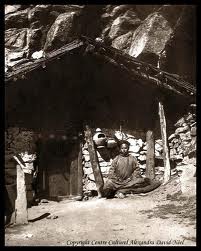The following is an excerpt from a teaching by Jetsunma Ahkon Lhamo called “Why P’howa?”
If you’re one of those lucky people who is about to embark on a journey to either a monastery in India or a monastery in Tibet where you can study the texts and receive the teachings that we as Americans literally cannot receive because they have not been translated or they are not available in this country… If you are one of those fortunate people that can go and do that and you will learn to practice by studying Tibetan and you will literally become a Tibetan in that environment even though you will be an American, you will completely change your life into that space. If you are able to do that, perhaps it’s not so important for you to study Phowa right now. Of course that’s assuming that you’ll live long enough to complete all of your practices. There are a lot of assumptions we’re counting on here, aren’t there! So at any rate, if you’re one of those people, then you may not need to practice Phowa in order to attain liberation in this lifetime.
We are also assuming that you have the karmic setup, and that you are literally wired in order to be able to achieve liberation in this lifetime, because it is also the case that there are people who can come into contact with the entire volume of what is available, every single essential pith teaching, every single possible cause for realization that we are able to come into contact with, and literally they cannot go in. The intake button is broken. The student cannot hear it. And eventually, because they cannot hear it, they will leave Dharma. They will go away from it. They will have to go away from it because they cannot stand to be in that presence. Karmically they are not prepared to be in the presence of such teaching, of such potent teaching. They will remove themselves. They will simply remove themselves. That’s simply how it is.
So, all of these things being the case, it sounds reasonable and sensible, does it not, to practice Phowa in order to take advantage of the most extraordinary opportunity in order to achieve the result at a time that seems reasonable to us. It does not seem reasonable to us to practice now for a result that may not ripen for another thousand years, our time. Ten thousand years, our time. We’re not motivated for that, but we can understand the positive result of practicing in order to achieve liberation in one lifetime.
Now, in order to be qualified to have these teachings, there are two things that must happen. First of all we must establish the proper motivation, and this is something we hear about again and again and again. How many flavors can ice cream come in? But this proper motivation absolutely makes it possible for you to receive the teaching. With no proper motivation, the teaching is very much like seed falling on stone. It will not take root. It will not blossom. There will be no result through no fault of the seed, but through the fault of the ground on which the seed is placed. So having the proper motivation is of the utmost importance, and for that reason I want to take some time to explain.
According to the Buddha’s teaching, our own nature is not inconsistent with the Bodhicitta or what we call the great compassion. The Bodhicitta is actually the true nature of our mind in its emanation or display form. So you can consider that our nature is, in a nondual way, wisdom, or emptiness, and method or Bodhicitta, compassion. These things are our nature.
The way that our language works is because of the way our dualistic thinking works. We have to mention emptiness as being separate from method. We have to mention wisdom as being separate from Bodhicitta because of the way our minds work—because of our internal separation, because of our delusion, our belief in the separation between self and other, between subjective and objective. But in truth, that primordial wisdom nature which is emptiness, which is wisdom, is inseparable from that which is method, from that which is the display, Bodhicitta or compassion. It is inseparable in the same way that, on a coin, one side is inseparable from the other. You cannot use a coin without using both sides. You cannot take a coin in your hand without using both sides. These are inseparable. They are nondual. They are indistinguishable from one another and yet, typical of our delusion and indicative of our delusion, we make distinction between that which is in truth not distinguishable.
Copyright © Jetsunma Ahkon Norbu Lhamo All rights reserved
